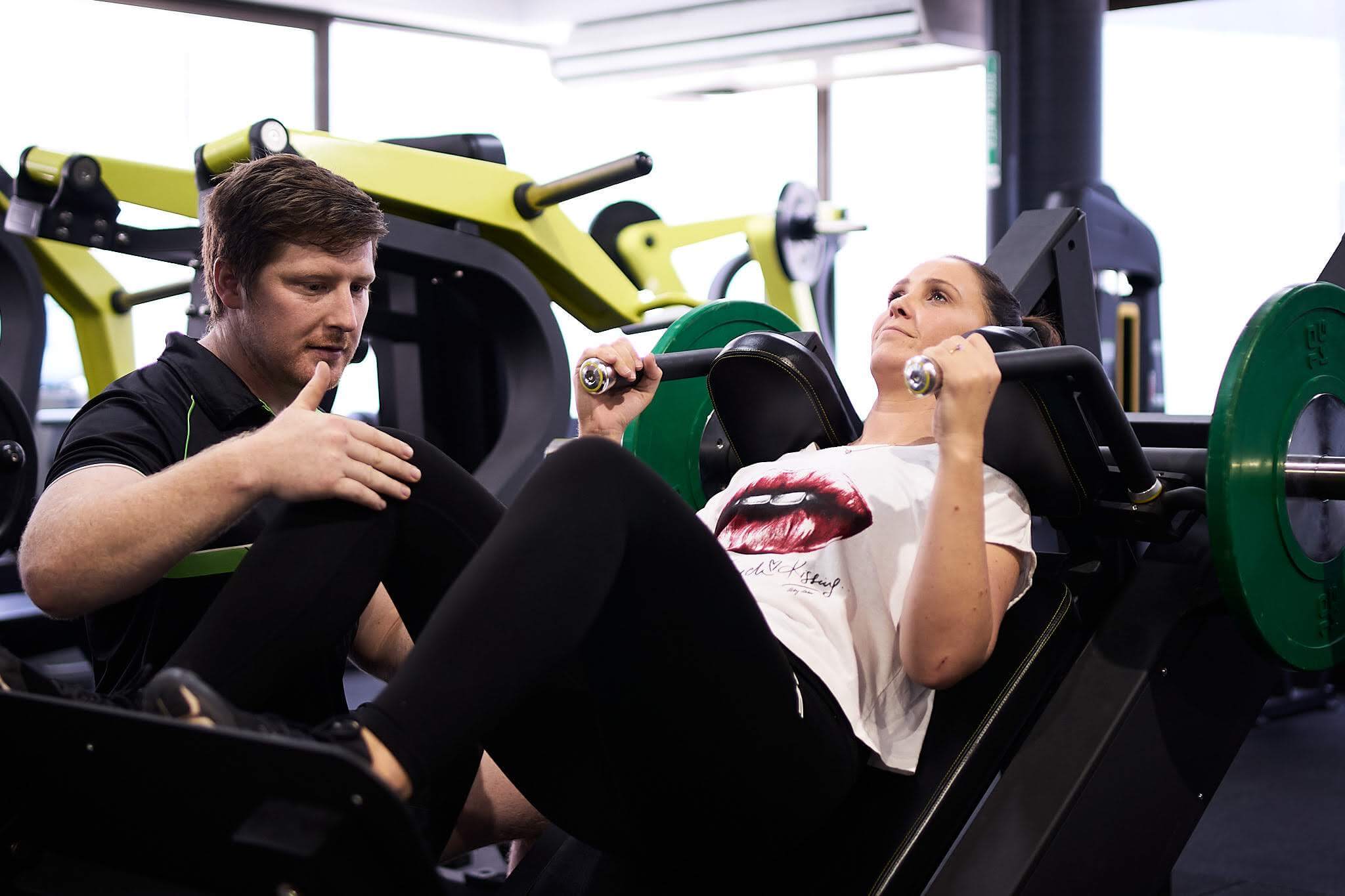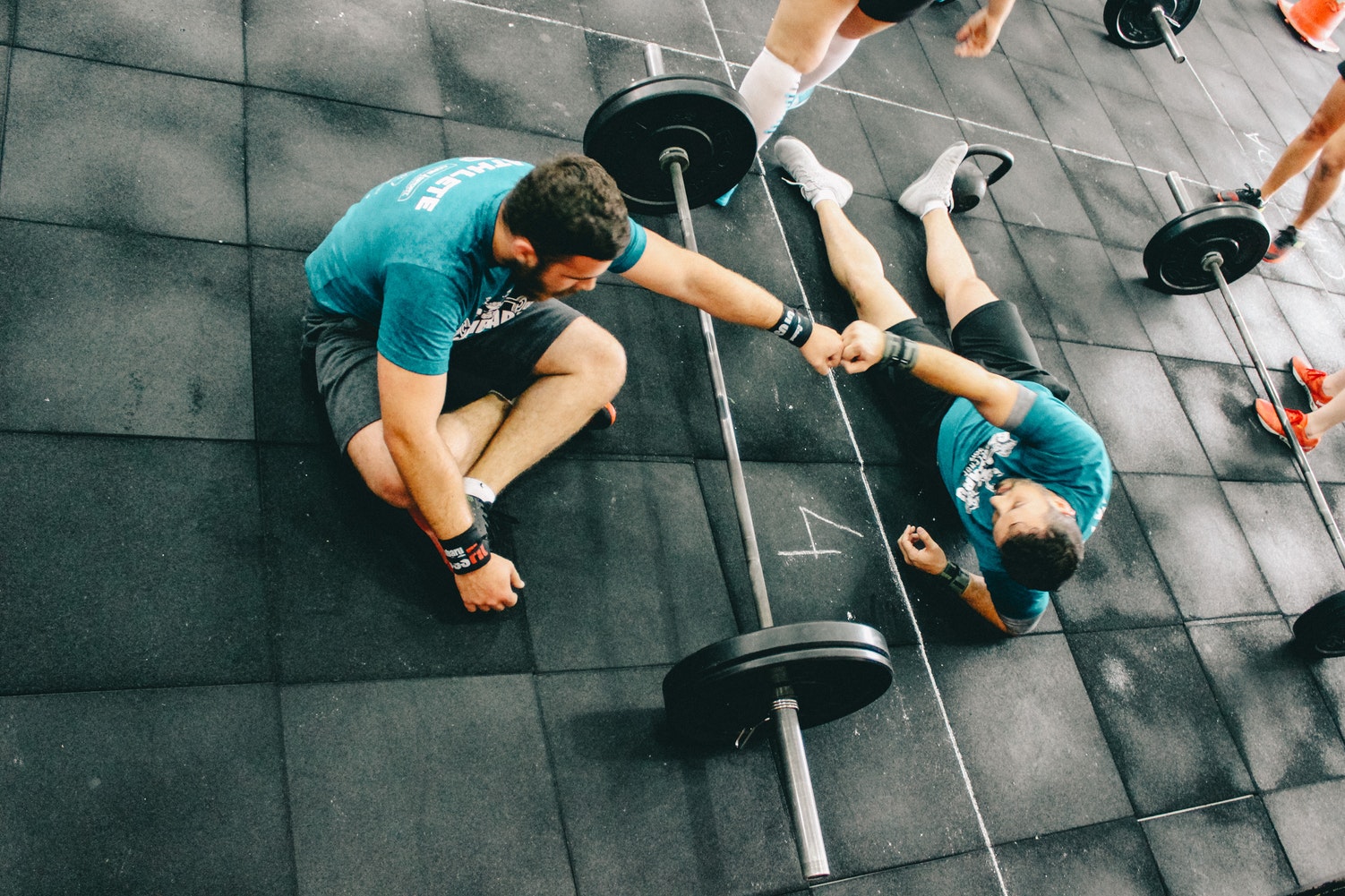Put simply, the answer is no. In order to lose weight, you need to eat in a calorie deficit. This means, the total energy you consume through eating and drinking, needs to be less than the total energy your body uses. Our bodies use energy simply by existing and keeping us alive, however we also use energy through our general day to day activities, our work, and of course, our exercise. And this is where a personal trainer can help you lose weight.
What Does A Personal Trainer Do For You?
They customised an exercise program for you.
So many companies provide a one size fits all approach to fitness; classes designed to ‘make you sweat’ and ‘get your heart rate through the roof’ may be fun for a time, they may even get you some results in the short term, however if you are looking for long term, sustainable results, then the best way to do this is with a program that has been designed specifically for you. These programs should be written based upon how you move, your strengths, your weaknesses, and you current abilities in the gym. For example, can you perform a full range squat? Can you pick up a bar safely?
Once you get past the basics, your program should then become even more specific with some testing protocols introduced that you can then come back to and re test. One of the most common ways to test, is through 1 rm, 3rm and 5rm efforts. This will enable the person writing your program to know exactly which exercises you should be doing, how many reps and sets you should be doing, of said exercises and of course, at what weight you should be performing these exercises at.
From there, the key is progression. If your goal is losing weight, then the focus should be on building as much muscle as possible so that your body is burning as much fat as possible when you are not in the gym training. This will allow you to get long term, sustainable results. Rather than results that come and go.
![]()
They teach you the correct forms and techniques.
Again, so many companies offer a one size fits all approach ‘lets get as many numbers through the door as we can to optimise profit’ that they are taking away the most important role or a trainer; to teach clients how to safely and effectively implement the movements that will get them to their end goal in the fastest possible way.
Too often we hear ‘I stopped squatting because my knees hurt’ or ‘I stopped deadlifting because my back hurts’. Strength training is not only the best way to get fat loss results, it’s also the best way to prevent injuries. A strong back is not a back that injuries easily. Strong legs should mean strong knees. If you are taught how to lift properly, not only will your fat loss results come faster, your overall quality of life will improve.
They help you set realistic goals.
We have been in this industry for 10+ years. Our trainers and coaches have over 50 years combined experience. This means we have a pretty good idea of what is achievable and what is only going to lead to disappointment. Having goals that are sustainable, measurable, achievable, realistic and have a time frame attached to them, not only gives you, the client, really good drive and direction, it also helps you to feel really good about the progress you are making. It will allow you to implement changes to your lifestyle that you can maintain, so that when you do reach your goals, you keep them, you don’t go backwards. Furthermore, if you have goals that are unrealistic, you might be doing so well, however because you are not achieving the goals you have set, you feel as though you are failing. If you feel like you are failing, chances are, you won’t want to continue pushing toward that goal.
They challenge you to push your limit.
Find a good gym, and it won’t just be the trainer doing this, it will be all the trainers in the gym as well as EVERYONE in the gym. A good environment breeds success. Sometimes in order to improve, to progress, it’s going to be hard. If you surround yourself by people in the same position as you, by people who succeed if you succeed, by people who want to encourage you and see you do your absolute best, then it’s going to be so much easier to be your absolute best.

How To Know If You Have A Good Personal Trainer?
They care more about you, than they do themselves. When you are in the process of finding a good personal trainer, make sure they first sit down with you, talk about your exercise history, injuries and ask you about your goals. From there, I would expect them to explain how they can help you achieve these goals and map out a plan that will help you get there.
They hold a degree and certifications.
Any personal trainer you find should have a cert III and cert IV in fitness as a bare minimum. If this is their only degree, then make sure they have done further studies (rehab courses, strength and condition coaching etc) as well as have some good experience in the industry. If they are new to the industry, make sure they have some form of mentor.
Anyone who has a degree in sports science or exercise physiology SHOULD be worth your time and money, although I am sure there are some outliers here, as there is with all professions.
They perform assessments.
One you have sat down and spoken about your training history, injury history and mapped out your goals, the next step should be an exercise assessment to see exactly what you can and cannot do in the gym. This will allow the trainer/coach to get an idea of what kind of training you need to do to get to your goals in the fastest and safest manner.
They are happy to answer questions.
Make sure you ask questions. Why are we doing this? What’s the next step? How does this help?
They follow a program.
If you find your trainer going from exercise to exercise without really having a plan, then you probably don’t have the best trainer you have. When finding a good personal trainer, just ask them, ‘What kind of program will you be placing me on?’
They take time working on form and technique.
If you have a trainer who teaches you movements such as deadlifts, squats, bench press, over head squats, clean and jerk, clean and press; skill full movements that have many requirements one must meet in order to perform the movement in full, then you are more likely than not, in good hands. They don’t need to teach you all of these movements, however you training should be based around 3-4 of these movements and ensuring you are progressing through these. Either progressing on your form and technique, or progressing with the weight on the bar.
On the flip side, if you are looking for a good personal trainer and they keep you to very basic movements, body weight movements only, lightweight circuits only or do lots of machine based movements with you, then chances are that you are yet to find a good trainer. Of course, there is a time and a place for most of what I mentioned, but that time and place is not every sessions, every week.

How Often Should You See A Personal Trainer?
This depends on many things. The main questions are, what are your goals? how badly do you want to achieve your goals? Will you train by yourself on a consistent basis? The other main question is of course, what is your budget?
To standardise this question, my recommendation would be to train 2 times per week with a trainer and 2-3 times by yourself. You can join a bootcamp if you don’t like to have a one-on-one personal session.
To perfect world this situation, train with a trainer each session.
We don’t live in a perfect world and not everyone can afford that. Not everyone can afford two sessions per week, then train once. If you can afford that and you won’t train by yourself, then train more. If you can afford that and want each session to be a session that allows you to work at your absolute best in terms of output, in terms of form and technique work, in terms of enjoyment, then train more.
There’s no set ‘this is how often you should train’ – it’s a case by case scenario.
How Long Should You Have A Personal Trainer?
How long do you want to be working at your best? How long do you want training to be really enjoyable? How long do you want to continue to grow and progress?
So, do you really need a personal trainer to achieve your fitness goals?
Did Michael Jordan have a basketball coach? Did Tiger Woods have a golf coach? Does Rodger Federer have a tennis coach? Does Simone Biles have a gymnastics coach?
Yes, they all do, and they all are (or where) the best at what they did. Would they have been good without a coach? Probably. But if you want to get the absolute most out of your training, then get a personal coach.

